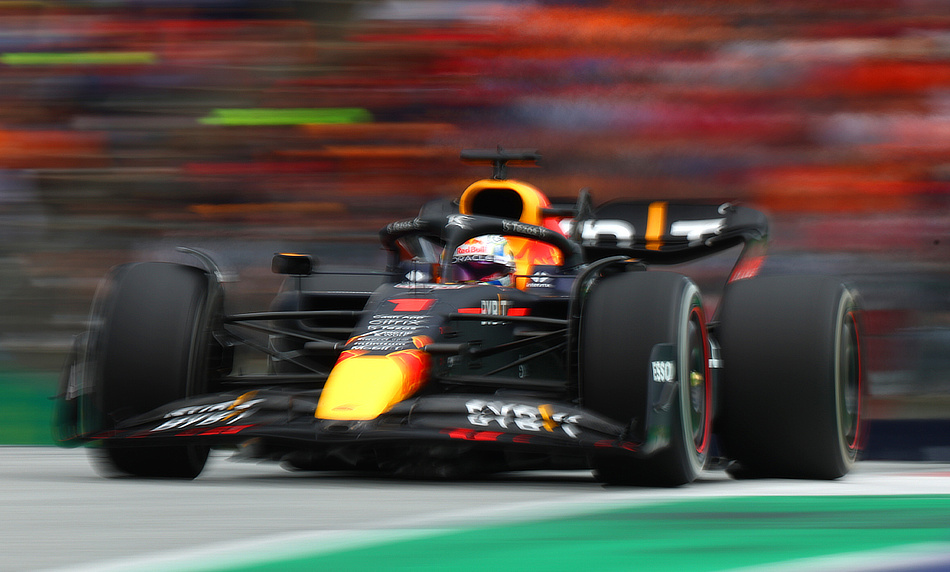With the FIA clamping down on suspected flexible floors, Red Bull F1, one such team that is rumored to have perfected the flexi floor, is seeking to talk up Mercedes’ form in a bid to delfect from the flexible floor debate.
How Does the Flexible Floor Work?
Grey areas in the rules have allowed certain F1 teams to push the rules to the limits. With any major rule change, as introduced for the 2022 season, teams will find loopholes and exploit them. The flexible floor is related to the plank, a strip of wood that is fixed centrally to the underside of an F1 car.
The wooden plank is designed to ensure that all cars are following FIA ride height regulations. If the plank wears away to below a certain level then the team in question is deemed to have contravened the rules. Red Bull’s so-called flexible floor allows the plank to move. Gaps in the chassis can accommodate the plank as it moves up and down.
In Red Bull’s case, it isn’t clear if the plank’s movement is automated or initiated by aerodynamic forces. Either way, Red Bull’s suspected flexible floor contravenes the ride height regulations because the team can lower the car and maximize ground effect aerodynamics without affecting the wear rate of the wooden plank.
FIA Clampdown
The FIA will introduce stringent testing at the French Grand Prix and will focus on the wear rate of the plank. From the Belgian Grand Prix onwards the FIA will mandate all teams to stiffen the planks.
Mercedes played a straight bat when it came to interpreting the ground effect rules for 2022. As a result, they have suffered the most with porpoising. Porpoising in F1 is a ground effect aerodynamic phenomenon that causes the car to bounce on a cushion of stalling air.
What Does Red Bull Have To Say
Because Red Bull has no porpoising issues, team principal Christian Horner has used the argument that it is up to teams to resolve their porpoising issues, not the FIA. However, the flexi-floor or flexi-plank revelation changes everything. Horner is changing the narrative.
Horner believes that Mercedes is meritoriously clawing its way back to the top and should be competitive enough to challenge for victory. During a recent media interview Horner revealed his thoughts ahead of the French Grand Prix:
“I think they’ll be a contender. They keep consistently scoring points. I’m not sure how far off they are in the constructors’ or drivers’ at the moment but sometimes to have more cars in play is a good thing, sometimes it might be a bad thing. But I think for the fans it’s great to have six cars competing for victories.”
“We’d expect them to be quick in Ricard,” Horner said. “They’re showing flashes of being there or thereabouts, the last two races have been pretty decent for them and there has been no sign I think of any porpoising at all. So they seem to be slowly bringing themselves back into the game.
What Horner is saying is that by having to comply with the FIA’s new flexible-floor mandate, Red Bull will lose the advantage it had in the first part of the season.








